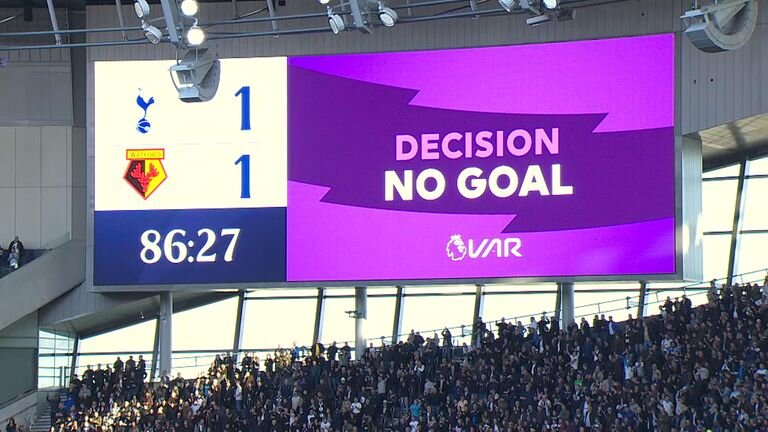Since its official introduction to football in 2018, Video Assistant Referee (VAR) technology has revolutionized the way the sport is played, refereed, and watched. Designed to assist referees in making more accurate decisions, VAR’s impact has been significant in both positive and controversial ways. This article explores how VAR has changed modern football, its advantages, controversies, and its overall influence on the sport.
1. Improved Decision Accuracy
One of the most notable benefits of VAR is its ability to reduce human error in officiating. By providing referees with access to video footage from different angles, VAR allows for a more precise analysis of critical moments, such as offside decisions, penalties, and red card incidents. According to FIFA, VAR has helped correct 99.3% of “clear and obvious” errors, significantly improving the fairness of the game. This system has been particularly useful in high-stakes matches like the World Cup and Champions League, where a single mistake can change the course of a tournament.
2. Increased Fairness in the Game
VAR has introduced a new level of fairness by ensuring that teams are not unfairly punished or advantaged due to referee oversight. For instance, goal-line technology, a part of VAR, has resolved disputes over whether the ball crossed the line, as famously seen in the 2010 World Cup, where England’s Frank Lampard was denied a goal against Germany. VAR has now minimized such incidents, ensuring that decisions are based on factual evidence rather than judgment calls.
3. Impact on Game Flow
Despite its benefits, one of the major criticisms of VAR is its impact on the flow of the game. Stoppages for VAR reviews can disrupt momentum, leading to longer game times and frustration for players, coaches, and fans. On average, a VAR review takes about 55 seconds, but complex decisions can take much longer. This has prompted discussions about whether football is losing its natural rhythm, with critics arguing that the delays undermine the excitement of the sport.
4. Fan Engagement and Emotional Rollercoaster
VAR has also had a profound effect on fan experience, both in stadiums and at home. The delay in celebrating a goal, pending a VAR review, has introduced a new dynamic to the emotional landscape of football. Fans often experience a rollercoaster of emotions, from initial euphoria to anxious waiting, and sometimes even to bitter disappointment if a goal is overturned. This has reshaped the traditional way fans engage with the game, as the certainty of a goal is now delayed until confirmation from the VAR team.
5. Controversies and Criticisms
Despite its intention to enhance fairness, VAR has not been without controversy. One of the most debated issues is the subjectivity in interpreting certain situations. For instance, offside decisions based on millimeters or unclear handball rulings have sparked numerous debates about the consistency of VAR use. Critics argue that despite the technology, the human element remains crucial, as referees still have the final say in interpreting the footage. This has led to accusations of VAR being overused or misused in some leagues, causing frustration among players and fans alike.
6. Psychological Impact on Players
VAR has altered how players approach certain situations in a game. Players now know that every move, foul, or action could be scrutinized under the microscope of video technology, leading to more cautious behavior, especially in the penalty area. This heightened awareness has arguably improved discipline on the field, but it has also introduced a new form of pressure on players, who now feel their actions are constantly under review.



